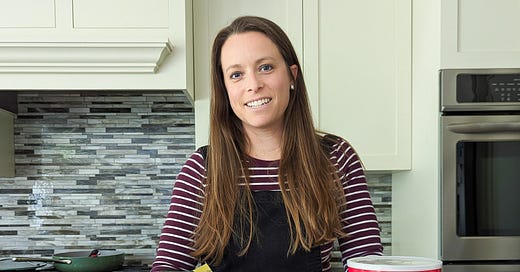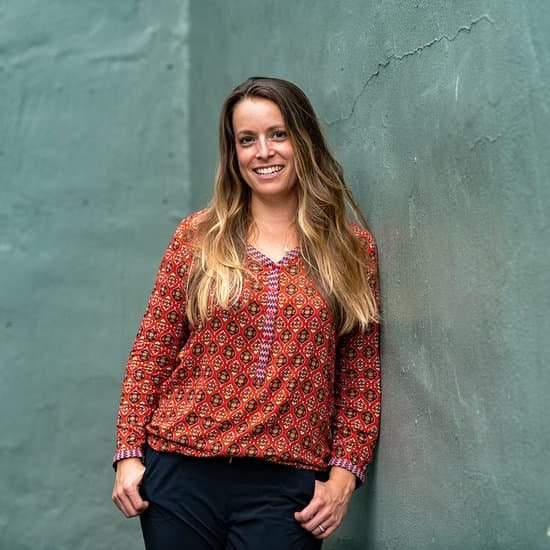issue #13: when plastic isn't always bad
and no, examining nuances doesn't equate to greenwashing
Why are we obsessed with lawns? Don’t throw away your old tree branches. And say what about plastic?
🎧 for those who prefer to listen
are you saying we should buy plastic?
I’ve partnered with the Flexible Packaging Association for this issue to explore the nuances of plastic and how it intersects with sustainable living.
You've probably seen those "things I wish I knew sooner about sustainable living" posts. They shed light on the nuances of learning what seems better on the surface and what's truly better in the long run. Plastic is definitely on this nuance list.
Plastic gets a bad rap (and deservedly so in some cases). A little bit of me dies inside when I see someone with 37 plastic bags, each holding a handful of items, shoved into their cart on the way out of the grocery store. C’mon, bring your own bags. They’re more efficient and effective anyway. And the flimsy produce bags for a couple of bell peppers… ugh.😏
However, plastic has some important applications when used responsibly and mindfully. It’s invaluable in the medical field for equipment and sanitation. Plastic helps preserve food to reduce waste. It’s useful for lightweight durability when we treat plastic products like they’re made to last (i.e., not use them once and throw them away…). It’s a pretty great material when used with intention.
When we first commit to more sustainable living, “plastic-free” dominates the narrative. This is a really helpful beginner guideline for learning mindful habits around consumption. But when we dig in, many things around sustainability get more nuanced.
is plastic packaging better?
Packaging comes in many forms: thin plastic, thick plastic, cardboard, metal, glass, and more. You've seen them all. Each requires different energy and resources to produce, transport, and dispose of. Some are reusable, while others are not. And often, we throw away reusable containers without reusing them. (This is a problem more than we want to admit.)
A full life cycle assessment comparing packaging types for a specific product sometimes concludes that plastic packaging is more eco-friendly than the glass jars and cardboard boxes that grace aesthetic Instagram feeds. A trip to the grocery store provides some perfect examples of where flexible plastic packaging might be a more sustainable choice than other alternatives.
let’s compare
On a recent trip to the grocery store, I bought some products (that I will use anyway) in different types of packaging to show you how they compare.
rolled oats: We go through a lot of oats in our house. I typically buy a brand in a stand-up pouch, but it’s also available in a cardboard cylindrical container (which seems like it should be recyclable and, therefore, more sustainable). But that’s not the case.
This life cycle assessment for cat litter containers on this page compares stand-up pouches to cardboard boxes. It’s not exactly the same as the oats containers, but it’s similar and representative of the relative resource requirements. The cardboard box uses more water, releases more greenhouse gases, and consumes more fossil fuels to produce, transport, and dispose of. Unless you have plans to reuse the cardboard container many times, the flexible plastic package is a better choice for the planet.
face wash: This face wash refill is a great example of plastic as the most eco-friendly packaging option. I purchased the original product in a glass jar that I can reuse. Refills come in a flexible plastic pouch, requiring less energy, fewer input materials, and far less water than another glass or heavy plastic container. The flexible plastic package is also lighter, so it has a lower carbon footprint from transportation than buying a refill in a glass jar each time.
I can only reuse so many adorable glass jars. The face wash brand is heavily invested in sustainability and uses flexible refill packages to align with its eco-friendly values. While it’s not as obvious with other packaging comparisons, this win for flexible packaging makes intuitive sense based on how it looks and feels.
dish soap: I found several dish soap brands that advertise sustainability values, and they come in various packaging. I purchased one brand in a stand-up pouch and one in a rigid plastic container. This packaging comparison aligns closely with the motor oil packaging case study here.
The rigid plastic packaging requires nearly six times as much water, three times as many materials, and three times as much fuel to transport compared to the stand-up pouch. The stand-up pouch has a higher product-to-packaging ratio, with more product and less packaging.
not always the obvious choice
The most eco-friendly choice isn't always the most obvious. Sometimes, we need to think outside the box and inside the flexible plastic option instead.
The results of the case studies surprised me at first because the narrative around plastic as inherently bad is pretty strong. But it makes sense that lighter, thinner packaging uses fewer resources throughout the production and consumption cycle. And aren’t we really after using less of just about everything?
should you buy plastic packaging?
None of this is a moral license to consume endlessly. We cannot buy our way out of this climate crisis; overconsumption is a huge issue! We don’t get a pass to fill our carts with crap just because it comes in recyclable packaging. If you don’t need it, don’t buy it.
But we're all going to buy things in our everyday lives. I regularly buy face wash, rolled oats, and dish soap. Knowing the facts behind packaging helps us make informed choices when we buy what we need. And in the case of these three products, flexible plastic packaging is more sustainable than the alternatives.
What do you buy in plastic packaging? When you examine the metrics around carbon emissions and materials use, are there any shopping habits you might rethink?
a few other eco-things
This article from
resonated with me so much. All the mindless consumption with no regard for the self-inflicted damage it causes.Have you tried any of these ways to dispose of yard waste?
Did you know that AI and data centers are monster consumers of energy?
Are you willing to give up some of your lawn for an eco-friendly alternative? Mother Nature will thank you.
Just found out this company has a pre-owned collection. Do you know other brands that have these? Will you share them in the comments?
just because
Loved this essay in The New York Times from a single, childless woman approaching 50 and celebrating the freedom she has that a patriarchal society can't come to terms with. I don't believe all men feel this way, but the most fragile among us certainly do, and we see it on display a lot lately. I’ve included a couple of quotes that caught my attention in particular.
"There is nothing more terrifying to a patriarchal society than a woman who is free. That she might be having a better time without permission or supervision is downright insufferable."
On the recent backlash against women's equality: "I suspect that a lot of this backlash is connected to the terror that men experienced at discovering that they are less necessary to women’s fulfillment than centuries of laws and stories have allowed them to believe."
Moms First petition to ask CNN to ask about child care at the presidential debate
Do you know where your favorite news outlets fall on these charts of accuracy and bias?
weekly mini challenge
action is the antidote to despair
Next time you’re shopping for something, look at the packaging of different brands. Which do you think uses fewer resources? Will you reuse the packaging? Find one or two items on your grocery list this week where you can choose a more sustainable packaging option and try that out if it’s accessible to you. Bonus points if you research a life cycle assessment that supports your assumptions.
Until next time, I hope you’re having the best week available to you. Don’t hesitate to comment or leave questions. I love hearing from you all.
Jen
💛 DID YOU KNOW that if you hit the HEART at the top or bottom of this newsletter, it makes it easier for people to find Sage Neighbor (and totally makes my day)? TIA 💛
Jen Panaro is a self-proclaimed composting nerd and advocate for sustainable living for modern families. Through her writing, workshops, and podcast guesting, she helps others find ways to incorporate sustainability into their everyday lives more easily while appreciating the joy along the journey.
When she’s not writing and creating, she’s a serial library book borrower, a messy gardener, a composting tinkerer. She’s a wife and mom of two boys and spends a lot of time in hockey rinks and other sporting venues watching her boys tear it up for their teams.







appreciate this meditation on plastics! thanks so much for sharing my piece.